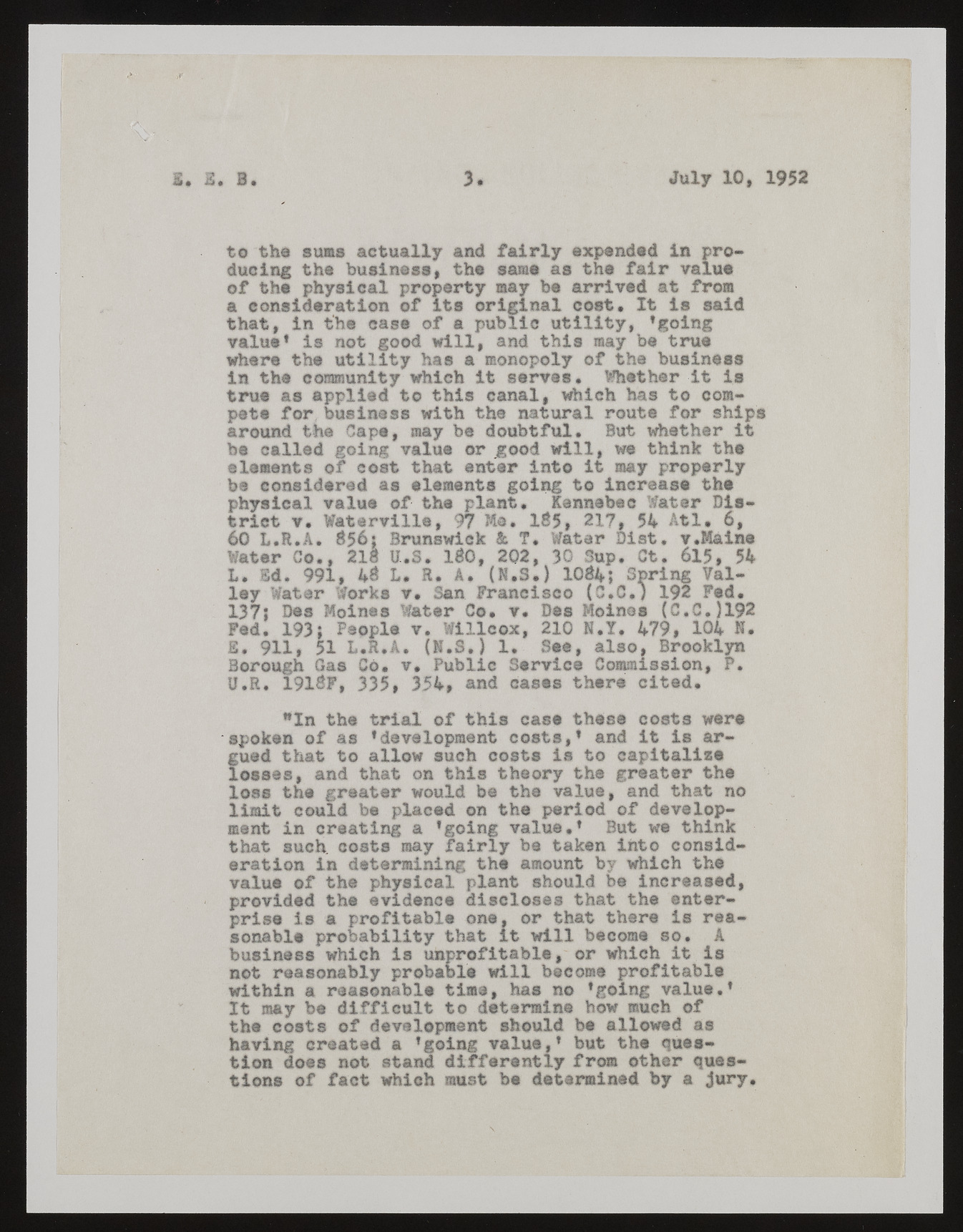Copyright & Fair-use Agreement
UNLV Special Collections provides copies of materials to facilitate private study, scholarship, or research. Material not in the public domain may be used according to fair use of copyrighted materials as defined by copyright law. Please cite us.
Please note that UNLV may not own the copyright to these materials and cannot provide permission to publish or distribute materials when UNLV is not the copyright holder. The user is solely responsible for determining the copyright status of materials and obtaining permission to use material from the copyright holder and for determining whether any permissions relating to any other rights are necessary for the intended use, and for obtaining all required permissions beyond that allowed by fair use.
Read more about our reproduction and use policy.
I agree.Information
Digital ID
Permalink
Details
More Info
Rights
Digital Provenance
Publisher
Transcription
B 3* July 10, to the sums actually and fairly expanded in producing the business, the same as the fair value of the physical property may be arrived at from a consideration of its original cost* It is said that, in the case of a public utility, *going value* is not good will, and this may be true where the utility has a monopoly of the business in the community which it serves. Whether it is tr*ue as applied to this canal, which has to compete for business with the natural route for ships around the Cape, may be doubtful* But whether it be called going value or good will, we think the elements of cost that enter into it may properly be considered as elements going to increase the physical value of the plant* Kennebec Water District v. Waterville, 97 Me. 185, £17, 54 Atl. 6 , 60 L.R.A. 856s Brunswick & T. Water Dist. v.Maine Water Co., 218 U.S. 180, 202, 30 Sup. Ct. 615, 54 L. Ed. 991, 48 L. R. A. (N.S*) 1084; Soring Valley Water Works v* San Francisco (C.C.) 192 Fed* 137; Das Moines Water Co* v* Des Moines (C.C.J192 Fed. 193; People v. Willcox, 210 H.Y. 479, 104 N* B . 911, 51 L.R.A. (N.S.) 1. See, also, Brooklyn Borough Gas Go. v* Public Service Commission, P. U.R. 1918F, 335, 354, and cases there cited. *In the trial of this case those costs were spoken of as * development costs,* and it is argued that to allow such costs is to capitalize losses, and that on this theory the greater the loss the greater would be the value, and that no limit could be placed on the period of development in creating a *going value.* But we think that such, costs may fairly be taken into consideration in determining the amount by which the value of the physical plant should be increased, provided the evidence discloses that the enterprise is a profitable one, or that there is reasonable probability that it will become so. A business which is unprofitable, or which it is not reasonably probable will become profitable within a reasonable time, has no *going value.* It may be difficult to determine how much of the costs of development should be allowed as having created a *going value,* but the question does not stand differently from other questions of fact which must be determined by a jury.

